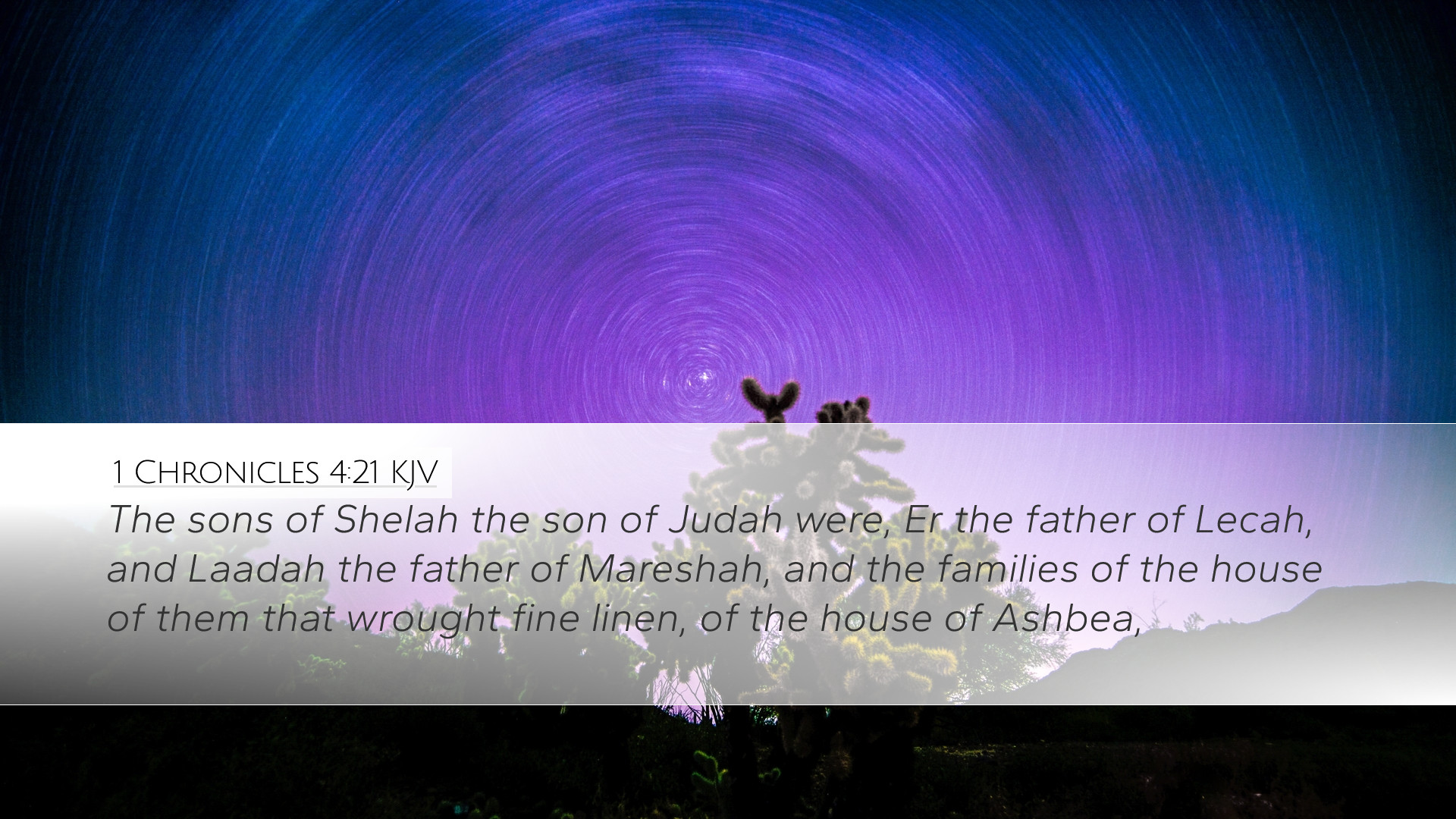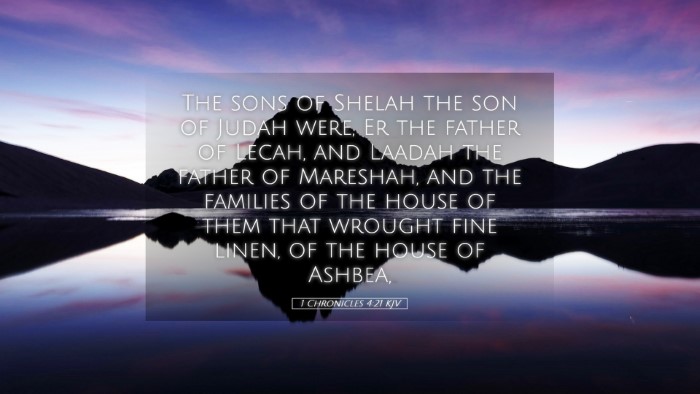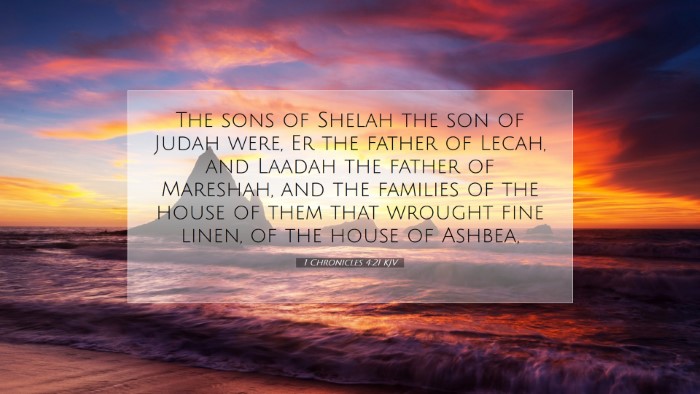Commentary on 1 Chronicles 4:21
Verse: 1 Chronicles 4:21 - The sons of Shelah the son of Judah were Er the father of Lekah, and Laadah the father of Mareshah, and the families of the house of them that wrought fine linen, of the house of Ashbea.
Introduction
This verse is part of a genealogical record that highlights the lineage of Judah. In the context of 1 Chronicles, the genealogies serve to demonstrate the continuity of God's covenant people and their inheritance. This passage may seem mundane at first glance, but its significance lies in its place in the broader narrative of Scripture. The insights of established commentators, such as Matthew Henry, Albert Barnes, and Adam Clarke, illuminate our understanding of the text.
Genealogical Significance
Matthew Henry notes that genealogies in the Bible often serve specific purposes, such as validating claims to land and heritage. Here, the mention of Shelah and his descendants emphasizes the continuation of Judah’s lineage and the fulfillment of God's promises concerning the tribe of Judah, which is crucial for understanding the royal line leading to Jesus Christ.
Albert Barnes expands on this point by suggesting that the families mentioned, particularly in relation to fine linen production, reflect the societal roles and contributions of Judah's descendants. The craftsmanship and trade are essential elements that indicate how these families prospered and contributed to the broader economy of Israel.
Insights into Individual Names
Adam Clarke offers a detailed examination of the individuals mentioned in the verse. He provides insights into the names, noting that 'Er' may signify 'awake' or 'watchful,' which can imply a call to vigilance in one's spiritual life. Laadah, which means 'fortunate' or 'blessed,' reminds readers of the blessings that come from obedience to the Lord.
- Er the father of Lekah: This highlights the importance of fatherhood and legacy within the Israelite culture, where lineage is critical for identity.
- Laadah the father of Mareshah: Clarke posits that Mareshah symbolizes a place of significance, solidifying the idea of location and its biblical implications, especially as it relates to the heritage of the Israelites.
Cultural and Economic Context
The passage also touches upon the economic activities of the families mentioned. The reference to those who 'wrought fine linen' signifies both a craft and a trade that played a significant role in the cultural and economic life of ancient Israel. Matthew Henry mentions the importance of such craftsmanship, as it was essential for the priests and their garments in the Temple.
Furthermore, Barnes draws attention to the broader implications of these economic activities for community identity and cohesion. The families that engaged in linen production would have contributed significantly to the communal and priestly attire, reinforcing their status and role within the broader Israelite society.
Theological Reflections
This verse can also provoke theological reflection on God's providence and the interconnectedness of families within divine plans. Each name and role contributes to the unfolding narrative of salvation history. The lineage of Judah is not just an ancestral listing; it connects to the narrative of Jesus Christ, the Lion of the tribe of Judah.
Henry reminds us that every name recorded in Scripture carries weight and purpose in God's overarching redemptive plan. Thus, the mention of Shelah and his descendants, despite their obscurity, emphasizes God's sovereignty in orchestrating history.
Applications for the Contemporary Church
Modern readers, including pastors and theologians, can draw several applications from this seemingly simple genealogical record:
- The Importance of Legacy: Just as the lineage of Shelah carries its own history, contemporary believers must consider the legacies they are creating through their faithfulness and obedience to God.
- Valuing Every Contribution: The emphasis on craftsmen within the lineage reminds the church today to value each member's contribution, no matter how small it might seem.
- Continuity of God’s Promise: The genealogies assure believers that God's promises are fulfilled throughout generations, encouraging faith in God's ongoing work in the church and individual lives.
Conclusion
1 Chronicles 4:21, while containing names and cultural references that may not resonate immediately, is rich with theological significance and application. By examining the insights of commentators like Henry, Barnes, and Clarke, we uncover layers of meaning that speak to the faith journey of every believer. This genealogical line beautifully displays God’s providential care and faithfulness through generations, reminding us that every name, every contribution, and every legacy counts in His divine narrative.


